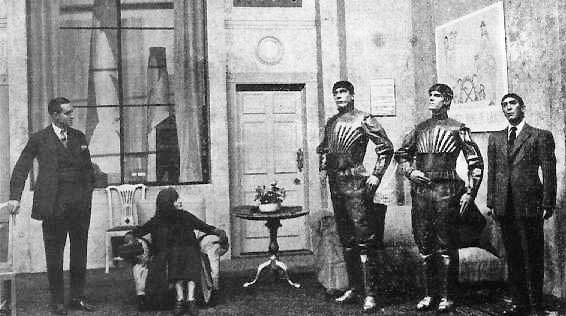Robot 🤖
Robots are probably going to control the world one day, which is ironic because historically they have always been slaves.
In popular culture, you’ll find that most robots typically fulfil roles serving humans; Rosey cleans up after the Jetsons, R2D2 fixes spaceships and WALL-E, short for Waste Allocation Load Lifter Earth-Class, collects garbage. And it’s not surprising when you look at the etymology and history of the word.
The word robot is actually Slavic in origin, a borrowing from the Czech word robota meaning ‘forced labour’ or ‘slavery’. It was first used to describe the system of serfdom during the time of the Austrian empire in which landlords could claim limitless rent, appropriate land from peasants or force them into “robot labour” to farm their estates.
The system was abolished in 1848 but the word would reappear in playwright Karel Čapek’s play “R.U.R (Rossum’s Universal Robots)”, published in 1920, about artificial humans who are created to serve as factory workers before they achieve self-awareness and revolt against their human masters.

Robots would capture the imagination of science fiction writers, appearing in the short story “I, Robot” by Eando Binder in 1939 and Isaac Asimov’s “The Three Laws of Robotics” in 1942 before cropping up in comics like “Astro Boy” (1952) and famous works of fiction such as Ted Hughes’ “The Iron Giant” (1968) and Philip K. Dick’s “Do Androids Dream of Electric Sheep?” (1968).
Robots would later appear in computing in the form of the “software robot”, a program that automatically performs a task without human intervention. Web robots or “crawlers” are software applications that systematically crawl and index the contents of the internet. This also explains why the file that tells these crawlers which URLs they can access on your website is called a "robots.txt" file.
Source: Oxford English Dictionary Online | Land reform and the Hungarian Peasantry: 1700-1848
- Previous: Wizard 🧙
